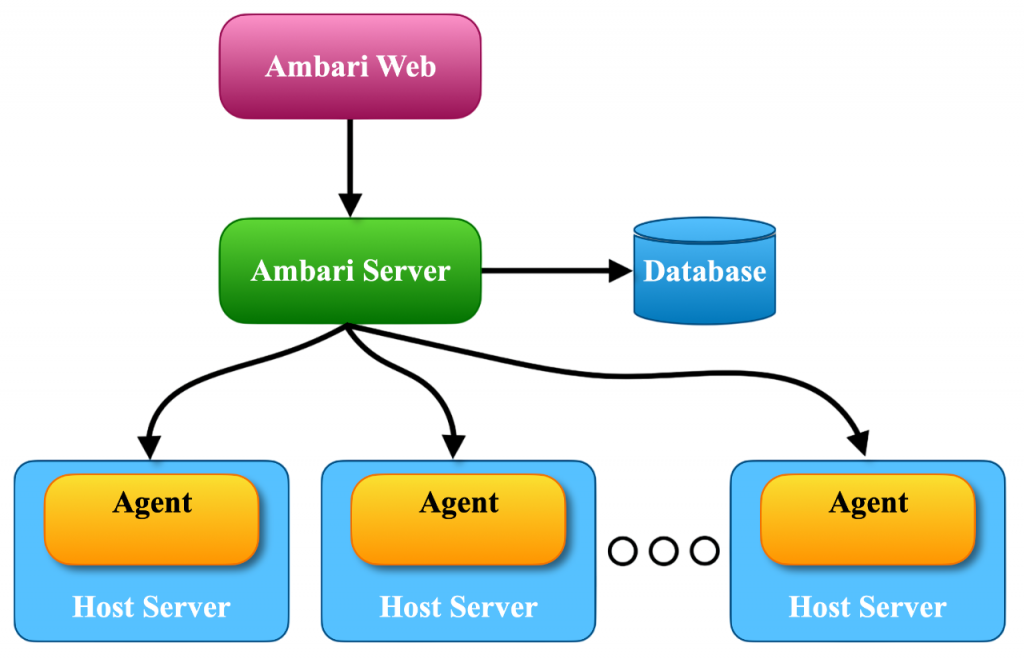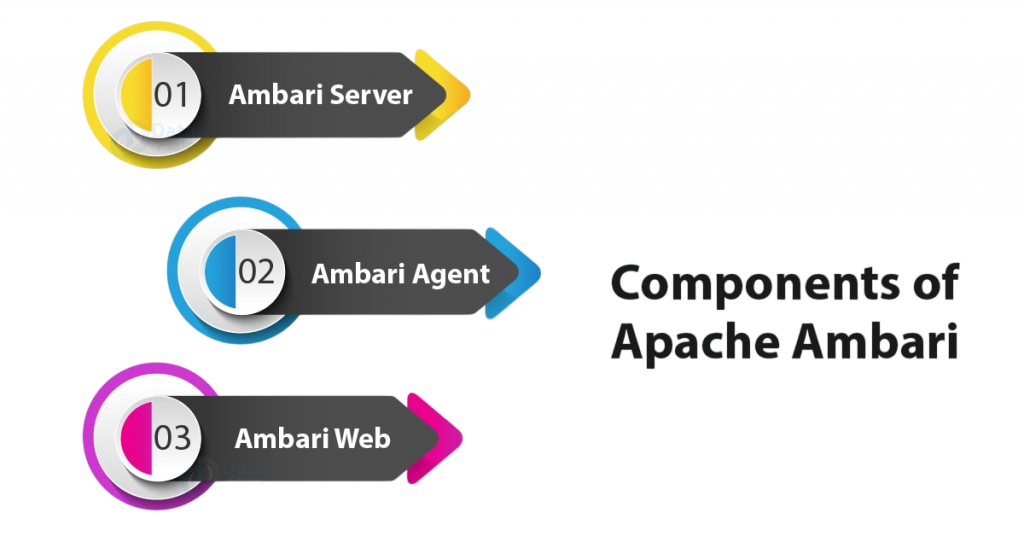
- Introduction: Managing Hadoop Just Got Easier
- What is Apache Ambari?
- Key Features of Apache Ambari
- Ambari Architecture Explained
- Ambari Components and Their Roles
- Installing and Configuring Ambari
- Monitoring Hadoop Clusters with Ambari
- Security and User Management in Ambari
- Conclusion
Introduction: Managing Hadoop Just Got Easier
Managing a Hadoop cluster is no easy feat. With numerous services like HDFS, YARN, Hive, HBase, and Spark running across tens or hundreds of nodes, administrators often find themselves drowning in complexity. That’s where Apache Ambari steps in a powerful and intuitive tool that simplifies the provisioning, monitoring, and management of Hadoop clusters. Gaining hands-on experience with tools like Ambari through Data Science Training helps professionals streamline cluster operations, enhance system visibility, and ensure efficient resource utilization in enterprise-grade environments. As Hadoop adoption continues to grow across enterprises, Ambari provides a central, user-friendly platform to reduce administrative overhead and increase efficiency.
What is Apache Ambari?
Apache Ambari is a web-based management platform that is open source and is known for its cool features. The developers of the project are Hortonworks but now it is under the Apache Software Foundation umbrella. What Ambari does is it acts as a one-stop solution for complex Hadoop environments to provision, monitor, and manage. A collection of the most critical services can be managed by the platform through a single, user-friendly interface which is also provided by Ambari. These services include HDFS, YARN, MapReduce, Hive, HBase, Zookeeper, and so on. Mastering these components is essential for any aspiring Big Data Hadoop Architect enabling seamless orchestration, monitoring, and optimization of distributed data ecosystems. By using their excellent GUI, RESTful APIs, and command-line tools, Ambari makes the process of numerous Hadoop deployments very simple and easy to navigate, thus giving organizations the opportunity to efficiently manage their big data infrastructure as they like with great accuracy and at their own pace.
Interested in Obtaining Your Data Science Certificate? View The Data Science Online Training Offered By ACTE Right Now!
Key Features of Apache Ambari
Ambari stands out because of its rich feature set tailored specifically for Hadoop cluster management. Understanding What Is Apache Sqoop adds another layer of capability enabling seamless data transfer between Hadoop and structured datastores, which complements Ambari’s orchestration by streamlining ingestion workflows across enterprise environments.
- Centralized Cluster Management: Administrators can install, configure, and manage Hadoop services across multiple nodes from a single UI.
- Dashboard Monitoring: Real-time insights into cluster health, performance metrics, disk utilization, service status, and alerts.
- RESTful API Support: Ambari provides extensive REST APIs to automate administrative tasks and integrate with external tools.
- Role-Based Access Control (RBAC): Allows assignment of roles such as admin, operator, and viewer with appropriate permissions.
- Alert Framework: Customizable alert notifications for cluster anomalies and performance issues.
- Service Management: Start, stop, restart, and configure individual services like Hive, Spark, and HDFS on the fly.
- Metrics Visualization: Visual dashboards showing metrics like memory usage, CPU load, network IO, and service uptime.
Ambari is not just a monitoring tool, it is a complete operational control center for Hadoop clusters.
To Explore Data Science in Depth, Check Out Our Comprehensive Data Science Online Training To Gain Insights From Our Experts!
Ambari Architecture Explained
Understanding Ambari’s architecture is key to leveraging its full potential. That’s especially true in environments where Big Data Drives Small and Medium Enterprises enabling streamlined cluster management, real-time monitoring, and scalable deployment strategies that empower lean teams to operate with enterprise-grade efficiency.

Key Architectural Components:
- Apache ambari server: The central controller that manages the cluster. It hosts the web UI, APIs, and logic for service orchestration.
- Ambari Agent: Runs on each Hadoop node and communicates with the Apache ambari server to execute commands like install, configure, and monitor.
- Ambari Web UI: Browser-based interface that allows administrators to manage the cluster graphically.
- Database: Stores metadata, service configurations, user credentials, and monitoring metrics. Common choices include PostgreSQL and MySQL.
Workflow:
- Admin logs in via the web UI.
- Apache ambari server communicates with agents.
- Agents execute scripts on respective nodes.
- Metrics and status updates are sent back to the server.
- Data is displayed on the dashboard or returned via APIs.
This client-server-agent model ensures scalable, secure, and real-time communication between components.
Ambari Components and Their Roles
Ambari comprehensive architecture is made up of the several essential components that work together harmoniously to simplify Hadoop cluster management. The Apache Ambari server performs the central coordinator functionalities, among these are service installation management, storing configuration data, handling task scheduling, and alerting.

Mastering these orchestration tasks through Data Science Training equips professionals to manage Hadoop ecosystems with precision ensuring seamless deployment, monitoring, and performance optimization across distributed clusters. Together with this, Ambari Agents are on all the nodes, they keep in touch with the server through the heartbeat mechanism, and report essential system metrics and service statuses. The responsive web interface developed with Ember.js, offers a simple-user experience with interactive charts, management wizards, and performance, comprehensive visualizations.
Gain Your Master’s Certification in Data Science Training by Enrolling in Our Data Science Master Program Training Course Now!
Installing and Configuring Ambari
Setting up Ambari is straightforward but requires planning.
Prerequisites:
- Supported OS: CentOS, RHEL, Ubuntu
- Password-less SSH between nodes
- Root access or sudo privileges
- Java installed on all nodes
- Database installed and configured for Apache ambari server
Basic Installation Steps:
- wget http://public-repo-
- hortonworks.com/ambari/centos7/2.x/updates/2.7.5.0/ambari.repo
- cp ambari.repo /etc/yum.repos.d/
- yum install ambari-server
- ambari-server setup
- ambari-server start
- yum install ambari-agent
- ambari-agent start
- URL: http://<ambari-server>:8080
- Default user: admin / admin
Once configured, Ambari automates service start-up and ensures smooth cluster operation.
Are You Preparing for Data Science Jobs? Check Out ACTE’s Data Science Interview Questions and Answers to Boost Your Preparation!
Monitoring Hadoop Clusters with Ambari
Ambari excels at real-time monitoring and diagnostics. When paired with robust machine learning models like Random Forest Classifiers, it enables intelligent alerting and predictive system health checks turning infrastructure data into actionable insights for proactive cluster management.
Monitoring Features:
- Service health indicators: Green/yellow/red
- Host-level metrics: CPU, memory, disk
- Service-level metrics: HDFS storage usage, Hive queries, YARN applications
- Heatmaps: Identify resource bottlenecks
- Custom dashboards: Tailor views for specific teams
Administrators can set thresholds for alerts, investigate log files, and even perform diagnostics directly from the UI. This improves uptime, stability, and performance.
Security and User Management in Ambari
Security in enterprise data systems is not something optional or just an additional feature but rather a must-have, and Ambari takes on this challenge with its all-around security framework. By providing very strong authentication methods like LDAP/AD integration and Kerberos support, Ambari makes it possible for organizations to authenticate users in a very easy and efficient manner through their existing enterprise identity providers. The platform’s advanced Role-Based Access Control (RBAC) allows administrators to closely and in detail allocate rights and set restrictions for different user roles. They could be cluster and service administrators, operators, or users with only reading capabilities. This granular control becomes even more critical in environments powered by Real-Time Analytics and Apache Spark where secure, role-specific access ensures high-speed data processing without compromising governance or compliance. Along with these security layers, Ambari also provides audit logging, which is a complete and transparent record of user activities and changes in the configurations, thus helping organizations to keep up with compliance and governance standards. With these security features in place, Ambari offers an enterprise-grade cluster management solution that is very much focused on data protection, access control, and total monitoring.
Conclusion
Apache Ambari has been recognized as one of the best innovations in technology to successfully handle Hadoop clusters without a hassle. It offers a one-stop solution that significantly reduces the operational complexity of the distributed data ecosystem. Offering centralized control over multi-node environments, Ambari allows organizations to simplify service installation, configuration, and monitoring through user-friendly interfaces and effective security features. The combination of its efficient REST APIs and automation tools gives the power to data engineers and system administrators to manage their intricate backend systems smoothly, thereby enabling on-demand monitoring, proactive alerting, and enterprise compliance. Building expertise in these areas through Data Science Training equips professionals to architect resilient systems integrating automation with analytics for smarter infrastructure management. With continual growth in data infrastructures, Apache Ambari eliminates the complexity of technology with user-friendly operations, thus granting IT professionals an unprecedented level of control and insight into their Hadoop environments with extraordinary simplicity and effectiveness.


